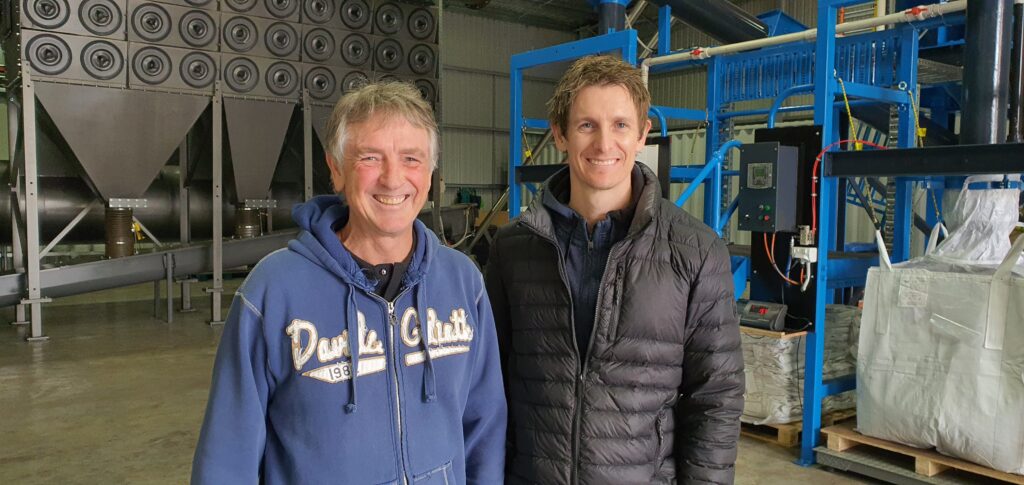WITH 349 million people from 79 countries facing acute food insecurity, a new breakthrough technology from Australia could be key to a solution. The World Food Programme recently … New technology key to help end world food...

WITH 349 million people from 79 countries facing acute food insecurity, a new breakthrough technology from Australia could be key to a solution.
The World Food Programme recently released findings that this was up from 287 million in 2021 – a rise of 200 million people compared to pre-COVID-19 levels.
“More than 900,000 people worldwide are fighting to survive in famine-like conditions. This is ten times more than five years ago. An immediate response is needed. The global community must not fail on its promise to end hunger and malnutrition by 2030,” it stated.
With record high fertiliser prices threatening to turn the world’s food affordability crisis into a food availability crisis, a new natural soil replenishment product, called Key 2 Ag, has been launched as a life-saver for farmers.
Key 2 Ag brings soil back to life and exceeds yields given by artificial chemical fertilisers. It will also improve the performance and reduce contamination of artificial fertilisers when
It liberates soil contents which include 60 separate mineral elements and more than 90 trace mineral elements as well as every other element required for optimal nutrition for any crop.
Technology inventor/ Key 2 Group director Mark Pilgrim, from Sydney, Australia, who has over 30 years experience in business management and technology development, said the product was derived from aged peat deposits that underwent a unique air and sound process that caused the peat to release its valuable contents immediately. It is known scientifically that this process could take hundreds of years otherwise.
“It turns dirt devoid of nutrients into healthy fertile soil, rich in nutrients. The key to healthier produce and people is healthier soil. If plants are nourished properly, they produce the ability to defend themselves and deter attacking bugs naturally so it minimises the need to use pesticides. Organic growing methods are good for the soil, the produce and its consumers,” Mr Pilgrim said.
He said most phosphate-based fertilisers suffocated soil, like plaque, and both phosphate and nitrogen-based fertilisers have 300 times the greenhouse effect of carbon dioxide.
“We need 90 trace elements for our immune system to have peak health,” he said.
“Supplements will give you some but it’s hard to take something with mineral content and have it absorbed properly in that form. You only get less than 5% benefit from most vitamin tablets. If it’s in food in the right form then you will get the maximum benefit and have optimal health.”
Mr Pilgrim said 90% of food lacked the essential nutrition required for optimum health.
Micronutrient deficiency is a global health issue affecting more than two billion people worldwide. It’s linked to poor physical and mental development in children as well as many other diseases in adults and children, including cognitive and skin disorders, malnutrition, obesity, viruses and diabetes.
A healthy diet includes large quantities of macronutrients like protein, fats and carbohydrates as well as micronutrients like vitamins and minerals. Diets high in processed foods or low in diversity may offer sufficient calories (energy) but lack the nutrition needed for good health.
“The problems that exist presently have been caused by man’s rush to produce large quantities of food without regard to the nutritional content of that food,” Mr Pilgrim said.
“Unfortunately, the focus has been on appearance and quantity instead of quality. The content of food crops can only be relative to the content of the soil. There can be nothing in the crop that didn’t come from the soil. Therefore, if the soil is devoid of nutrients, so too will the food grown be devoid of nutrients.”
For more details, visit www.key2group.com
The post New technology key to help end world food crisis appeared first on AA Xpose Media.














